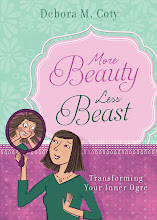| In England you Give Way rather than Yield |
I'd like to end this mini-series with one last Mt. Everest of writing: correct punctuation.
I borrowed the following examples of the undeniable importance of proper punctuation from Sue Miholer (suemiholer@comcast.net), a wonderful writer and editor who spoke at the Florida Inspirational Writers Retreat.
Note the distinct and astounding difference in meaning of the paragraph below with just a few simple changes in punctuation:
Dear John,
I want a man who knows what love is all about. You are generous, kind, thoughtful. People who are not like you admit to being useless and inferior. You have ruined me for other men. I yearn for you. I have no feelings whatsoever when we're apart. I can be forever happy - will you let me be yours?
Gloria
Dear John,
I want a man who knows what love is. All about you are generous, kind, thoughtful people, who are not like you. Admit to being useless and infereior. You have ruined me. For other men, I yearn. For you, I have no feelings whatsoever. When we're apart, I can be forever happy. Will you let me be?
Yours,
Gloria
Big wow, huh? In the first example, Gloria has the major hots for John. In the second, Glo wants to shed him like two-week-old leg hair. The exact same words were used for each, but sentiment completely shifted with the re-placement of a few commas, periods, and question marks.
My point?
We must proof our work and pay careful attention to how we use - or misuse- punctuation. Excellent references are Strunk and White's The Elements of Style, The New Webster's Grammar Guide, and The Chicago Manual of Style.
If we're not careful, we might one day inadvertently shed new light on even our own lineage with one missed comma:
I'd like to thank my parents, the Pope, and Mother Teresa.
I'd like to thank my parents, the Pope and Mother Teresa.





